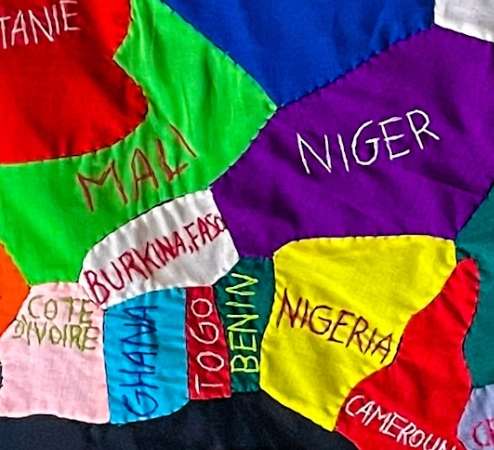Haiti and Benin Formalize Cooperation Agreement: Exploring Potential for Troop Deployments.
The Republic of Benin, a French-speaking nation nestled in West Africa alongside Nigeria, and the Republic of Haiti, a Caribbean nation sharing the island of Hispaniola with the Dominican Republic, embarked on a significant diplomatic endeavor in 2024, signing a memorandum of understanding to bolster their bilateral relations. This agreement, formalized in Cotonou, Benin, between the Caribbean Community (CARICOM) and Benin’s Ministry of Foreign Affairs, symbolized a commitment to enhanced cooperation and collaboration on various fronts, including security, education, culture, diplomacy, and scientific research. The agreement, structured for an initial five-year term with the option of renewal, signaled a new chapter in the relationship between these two nations, both grappling with unique challenges and seeking avenues for mutual support.
The genesis of this partnership stemmed from a shared desire to fortify political ties and foster cooperation on international issues, echoing the broader Pan-African and Caribbean relations. While the memorandum itself did not explicitly detail the deployment of Beninese troops to Haiti, the inclusion of “security” as a key area of collaboration sparked speculation about potential future military or peacekeeping support. This speculation gained momentum in light of Benin’s earlier pledge in February 2024 to contribute 2,000 troops to a multinational force aimed at quelling gang violence and reinstating stability in Haiti. This multinational initiative, spearheaded by Kenya and backed by the United Nations, faced significant logistical hurdles and internal deliberations within Benin, which resulted in the non-deployment of the promised troops by January 2025.
The security situation in Haiti, marked by escalating gang violence, political instability, and a humanitarian crisis, prompted international calls for intervention and support. The multinational force, initially comprising personnel from Kenya, Jamaica, Belize, the Bahamas, Guatemala, and El Salvador, aimed to address the complex security challenges plaguing Haiti. While Benin’s contribution remained pending, the memorandum of understanding between Haiti and Benin laid the groundwork for potential future security cooperation, contingent upon further agreements and developments.
The memorandum also served as a catalyst for discussions regarding Haiti’s future geopolitical alignment. The strengthened ties with Benin, an African nation, raised questions about whether a more stable Haiti might prioritize relationships with African countries over its Caribbean neighbors. This potential shift in alignment reflects the evolving geopolitical landscape and the search for strategic partnerships in addressing regional challenges. The memorandum, while primarily focused on bolstering bilateral ties, inadvertently opened a dialogue about Haiti’s long-term international relations strategy.
Beyond the security aspects, the agreement emphasized cooperation in diverse areas, encompassing education, culture, diplomacy, and scientific research. These provisions underscore the multifaceted nature of the partnership and the potential for knowledge exchange, cultural enrichment, and diplomatic collaboration. The visa waiver agreement signed concurrently between CARICOM and Benin further facilitated travel and interaction between the Caribbean and Benin, promoting people-to-people connections and bolstering economic and cultural exchange.
In essence, the memorandum of understanding between Haiti and Benin signifies a pivotal moment in their bilateral relations, reflecting a shared commitment to enhanced cooperation and collaboration across a broad spectrum of areas. While the deployment of Beninese troops to Haiti remained unrealized in the initial phase, the agreement established a framework for potential future security collaboration, contingent upon further developments and specific agreements. Furthermore, the memorandum sparked broader discussions about Haiti’s future geopolitical alignment and its potential shift towards stronger ties with African nations. The multifaceted nature of the agreement, encompassing security, education, culture, diplomacy, and scientific research, underscores the potential for a deep and impactful partnership between these two nations. The visa waiver agreement further cemented the commitment to fostering closer ties and facilitating travel and interaction between the Caribbean and Benin.
Share this content:












Post Comment